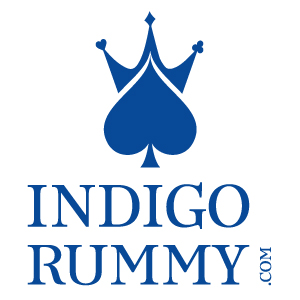Draft rules for online gaming: What are the regulations govt has released, and why
IT minister Chandrasekhar said the government may also regulate the content of online gaming, to ensure they don’t have ‘violent, addictive or sexual content’. We explain all the details.
Minister of State for Electronics and IT Rajeev Chandrasekhar said that “around 40 to 45 per cent of the gamers in India are women” and therefore it was all the more important to keep the gaming ecosystem safe”.
A self-regulatory body, mandatory know-your-customer norms for verification, and a grievance redressal mechanism are among the key proposals in the draft rules for online gaming, released by the Ministry of Electronics and IT (MeitY) on Monday.
Online games will have to register with a self-regulatory body, and only games cleared by the body will be allowed to legally operate in India. Online gaming companies will not be allowed to engage in betting on the outcome of games, the proposed rules say.
Minister of State for Electronics and IT Rajeev Chandrasekhar said that “around 40 to 45 per cent of the gamers in India are women, and therefore it was all the more important to keep the gaming ecosystem safe”.
Describing online gaming as “a very important piece of the start-up ecosystem and a part of the goal of the 1-trillion dollar economy”, Chandrasekhar said the government will work hard to ensure all opportunities are provided to Indian start-ups.
What do the draft rules say?
The proposed rules, aimed at safeguarding users against potential harm from skill-based games, have been introduced as an amendment to the Information Technology (Intermediary Guidelines and Digital Media Ethics Code) Rules, 2021. The attempt is to regulate online gaming platforms as intermediaries and place due diligence requirements on them.
“As per the principles laid under the rule, wagering on the outcome of a game will not be allowed. All online gaming companies will have to register with the self-regulatory body,” Chandrasekhar said.The self-regulatory body will have a board of directors with five members from diverse fields, including online gaming, public policy, IT, psychology and medicine. It must ensure that the registered games don’t have anything “which is not in the interest of sovereignty and integrity of India, defence of India, security of the state, friendly relations with foreign states or public order, or incites the commission of any cognizable offence relating to the aforesaid.”
There could be more than one self regulatory body and all of them will have to inform the Centre about the games they have registered along with a report detailing the criteria for registering. Chandrasekhar said that going forward, the government may also regulate the content of online gaming, and “ensure that the games do not have violent, addictive or sexual content”.
Like an intermediary, online gaming firms will be required to undertake additional due diligence, including KYC of users, transparent withdrawal and refund of money, and a fair distribution of winnings. For KYC, they will have to follow norms laid down for entities regulated by the Reserve Bank of India (RBI).
Gaming companies will also have to secure a random number generation certificate, which is typically used by platforms that offer card games to ensure that game outputs are statistically random and unpredictable. They will also have to get a “no bot certificate” from a reputed certifying body.
Similar to social media and e-commerce companies, online gaming platforms will also have to appoint a compliance officer who will ensure that the platform is following norms, a nodal officer who will act as a liaison official with the government and assist law enforcement agencies, and a grievance officer who will resolve user complaints.
MeitY has invited comments on the draft rules by January 17, and the final rules may be ready next month.
Online gaming sector in India
The revenue of the Indian mobile gaming industry is expected to reach $5 billion in 2025. The industry grew at a compound annual growth rate (CAGR) of 38 per cent in India between 2017-2020, as opposed to 8 per cent in China and 10 per cent in the US.
It is expected to grow at a CAGR of 15 per cent to reach Rs 153 billion in revenue by 2024, as per a report by VC firm Sequoia and management consulting company BCG.
How have stakeholders reacted to the proposed rules?
Online gaming companies and industry associations have welcomed the rules.“We welcome the release of the draft rules, which brings online gaming under uniform central regulation. We are truly grateful to MeitY, and especially the Hon’ble Ministers for bringing such thoughtful and balanced rules, in a short time which balances the speed of innovation with gamer welfare,” said Sai Srinivas, co-founder and CEO of fantasy gaming platform MPL.
“We are grateful to the government for acknowledging the long-standing need of the gamers and the online gaming industry. We believe this is a great first step for comprehensive regulation for online gaming and will hopefully reduce the state-wise regulatory fragmentation that was a big challenge for the industry,” said All India Gaming Federation (AIGF) CEO Roland Landers in a statement.
“While the industry would continue to expand in the coming years, driven by innovation in technology, growing culturally relevant IP creation, and increasing access to smartphones and high-speed internet in deeper Bharat, the requisite stability came just in time,” said Saumya Singh Rathore, Co-Founder, WinZO games. “The online gaming industry would significantly benefit from a stable policy framework that renders clarity on what is permissible. The sector would evolve to be more accountable and thus safer for the end consumers. The central framework would also put a pause to the knee-jerk blanket bans by states,” he said.
